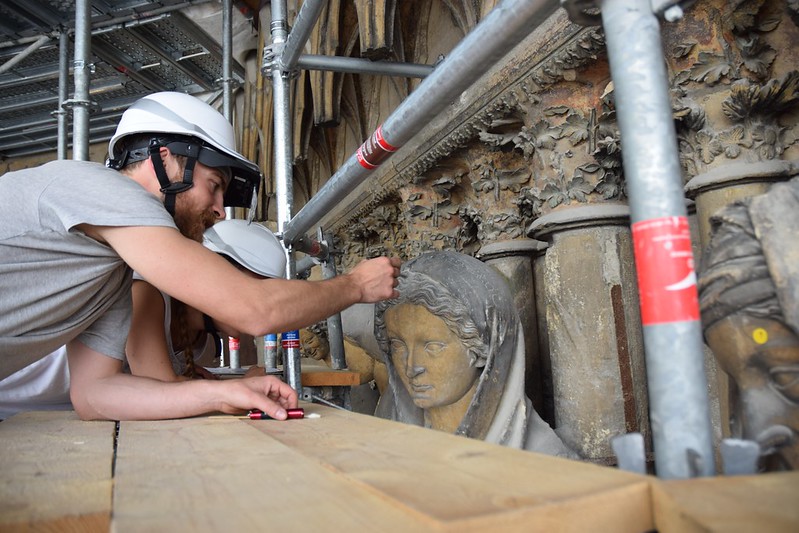National Institute of Cultural Heritage: Educational and Training Programme for Conservators
Each year, National Institute of Cultural Heritage (Institut national du patrimoine) places students of heritage conservation in field schools which offer those enrolled valuable professional and practical experience.
The programme equally benefits students, the heritage sites and those in charge of the sites concerned. This pedagogical framework results in heritage sites benefitting from preliminary studies (such as at the Cathedral of Reims in 2017), restoration works (such as at the Biermans-Lapôtre Foundation, 2004-2017) or preventive conservation measures (such as at the municipal archives of Aubervilliers in 2017), for example. It presents the opportunity for students to collaborate with research centers, such as in the research laboratories of historical monuments. The pedagogical programme is financed by the National Institute of Cultural Heritage and its supervisory authority, the French Ministry of Culture.
“This is a well-developed and comprehensive field-based programme designed to secure knowledge transfer and team building capacity”, the jury stated.
The aims and objectives of the field schools are equally centred around the needs and interests of students, who acquire skills and experience; heritage, which is studied, preserved, restored and enhanced; the site, which experiences improved visibility and accessibility.There are 3 types of field school, those in preventive conservation, curative conservation and restoration. The jury was impressed by the fact that “the programme is inclusive, encompassing all different specialities and disciplines in the field of conservation”.
Every year, the Institute organises some 20 short-term field schools in both France and abroad for all students in the first to third years of their Master degree programme and for ERASMUS students. The selected sites are of varying significance, from small or lesser known monuments to UNESCO World Heritage sites. The field schools have a solid scientific basis and the projects guarantee the sustainability of the actions undertaken. Thanks to the pedagogical framework, the field schools often make it possible to carry out procedures at heritage sites that could not be developed otherwise (due to the cost, the time required, human resources needed, or the interdisciplinary nature of the research). The activities undertaken and the recommendations regarding conservation are documented and a symposium is organised each year to share the results of the field schools. The field schools, both in France and abroad, are often part of larger projects that sometimes involve several European countries.
More information
www.inp.fr

